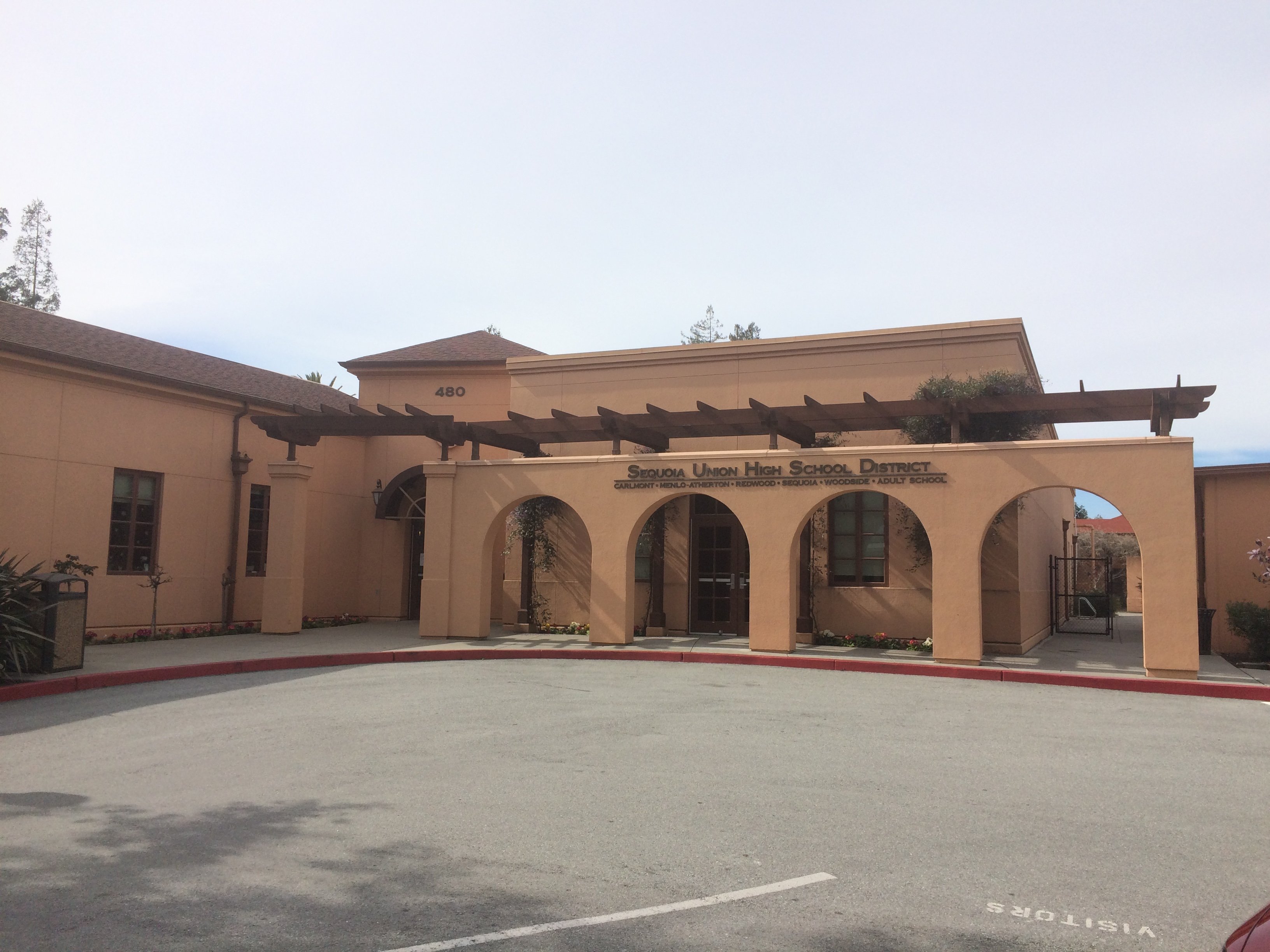Antonio López, a first-year modern thought and literature Ph.D. student and a newly elected East Palo Alto city councilmember, is leading an ad hoc committee that aims to diversify Sequoia Union High School District (SUHSD) higher administration.
López — who grew up in the community that SUHSD serves — and his fellow committee members are urging that leadership for the district, which is located in San Mateo County and primarily serves students of color, reflect the demographics of its student population.
Leadership positions across the district’s seven high schools are currently filled by majority-white educators. As an advisory body external to the district, the committee plans to achieve its goal — elevating people of color to principal, vice principal, cabinet and superintendent positions — by working with a coalition of parents, students, teachers, activists and other community members.
“This committee, in part, is designed to promote and elevate and empower those voices who are frustrated and aggrieved, giving them a platform to give their testimony,” López said. By bringing together siloed groups in the community, he hopes that the committee will build on previous diversification efforts for teaching and mid-level administrative positions to make concrete changes within high-level leadership.
“[The committee] is definitely set to be very deeply embedded in the community,” said Heather Starnes-Logwood, the executive director of Live In Peace, a nonprofit organization based in East Palo Alto that partners with the County of San Mateo and the SUHSD to mentor youth at risk of not graduating high school.
In the eyes of Starnes-Logwood, who has lived in the SUHSD community for 35 years, the involvement of city council leaders in the school district is a powerful engine for change. “Somebody needs to be asking the questions who has the authority and the trust to actually get the answers and get some results,” she said.
The ad hoc committee aims to fill this role. At its first meeting on Feb. 12, the committee’s diverse group of six local leaders, including San Mateo County Board of Education Trustee Hector Camacho M.A. ’07, expressed that current district diversity and equity initiatives are not enough to address the systemic bias that underpins hiring and retention processes.
Committee members also identified the district’s ongoing search for a new superintendent as their first point of focus. According to the job posting on the district website, which was created using community survey feedback, the SUHSD board “welcomes a diverse group of candidates” who have demonstrated “cultural competence” and are preferably bilingual.
According to SUHSD trustee Shawneece Stevenson, the board chose Leadership Associates, the search firm conducting the superintendent hiring process, because it “boldly discussed and addressed the issue of race in education” and seemed to be “walking the talk.”
Still, committee members expressed concerns regarding a lack of open communication to the public during the superintendent search process, which is set to wrap up in early April. They also discussed the trade-off between speed and careful, community-focused decision making and considered demands for a hiring freeze, depending on the district’s responsiveness to increasing transparency.
“We are currently in an anomalous position of fewer people of color in leadership roles than we have had over recent years,” wrote President of the SUHSD Board of Trustees Alan Sarver in an email to The Daily. Sarver added that the SUHSD’s future hiring practices will reflect the “greater intentionality and urgency” that the ad hoc committee has called for regarding matters of diversity and equity.
The district has other diversity and equity initiatives in progress, according to Sarver. These include an Equal Employment Opportunity Plan and a job description for an Equity and Diversity Director position. Initiatives already in place include an ethnic studies graduation requirement and the “Developing Our Own” program, which has brought five to 10 people of color from the community into teaching positions each year for the past four years.
The Equity and Diversity Advisory Council, which is led by teachers and district staff of color, recommended several of these changes. The council was established last spring to address racial injustice, including lack of representation, in the SUHSD educational system. Stevenson, the only person of color on the Board of Trustees, believes that a partnership between the ad hoc committee and the Equity and Diversity Advisory Council would benefit both sides.
For López, who has witnessed racial disparities in the community firsthand, the ad hoc committee remains a unique and necessary source of critical scrutiny on issues of diversity and equity within the district. When asked about the relationship between the ad hoc committee and district leadership, he said that the committee’s formation was met with reluctance.
“I think we are slowly coming to a consensus that this is a concern,” López said.
López and San Mateo National Association for the Advancement of Colored People (NAACP) education chair Maurice Goodman, a fellow committee member, met with Sarver and interim superintendent Crystal Leach on Feb. 4.
“This issue isn’t about provoking anyone…I invite people to look at these efforts not as creating a divide, but as thinking about what it is going to take to finally make the change that we’ve been asking for for a very long time,” he said.
Starnes-Logwood, who has often worked with city and school administration through her role at Live In Peace, agrees that collaboration will be crucial for the ad hoc committee to succeed.
“A lot of people have complaints and nobody even knows what they are, or there is somebody doing something but it’s almost like two pipes that are not connected,” she said. Starnes-Logwood added that a history of issues surrounding diversity and equity has left the community “a little wary” of empty promises for change. In her opinion, the ad hoc committee has emerged at the right time.
“I’m hopeful that there’s the collective will to do the right thing,” she said.
